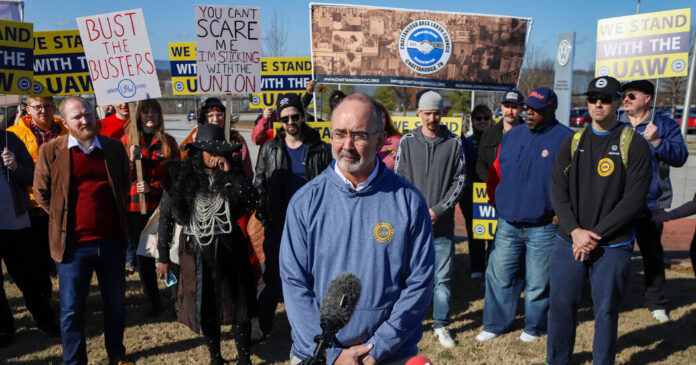“If the workers in Chattanooga get a great contract, a big raise, better health benefits and then do the same at Mercedes, there will be a lot more good chances of getting good contracts in a short period of time,” said Madeline Janis, co-executive director of Jobs to Move America, a group committed to creating good jobs in clean technology industries.
Ms. Janis, whose group works to unionize factory workers in the South, said the dynamic could spread beyond the auto industry to other manufacturers because employees from different companies in the region often know each other and discuss these issues. “Their siblings and spouses work in other plants,” she said. “It will be all over social media.”
And some experts said a surge in unionization in factories could spread to other types of jobs. “The enthusiasm is contagious across industries,” said David Pryzbylski, an attorney at Barnes & Thornburg who represents employers. “People look at it and say, ‘Hey, I think there’s something there. Maybe I should be interested too.'”
Several workers echoed this point, saying they had received encouragement from work actions in other industries in recent years. Successful campaigns in Hollywood and at companies like Starbucks and Apple “have been a huge blessing for us,” said Emma Geiger, an employee at Sega of America who helped unionize the video game maker last year. “Particularly in the perception of unions broadly as something not to be feared but to be embraced.”
Overall, nearly 70 percent of Americans say they support unions, compared to about 50 percent a decade and a half ago, according to Gallup. After declining for several years, the number of union members rose by nearly 280,000 in 2022 and by about half last year, although the share of workers in unions fell slightly as more people entered the workforce. According to the National Labor Relations Board, union election registrations increased 35 percent in the six months ending in March compared to the same period last year.















